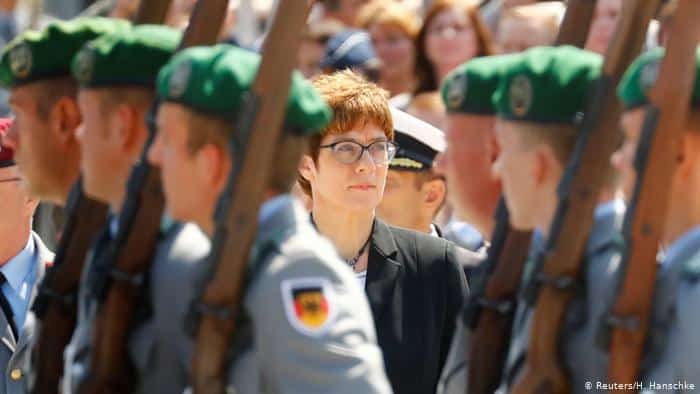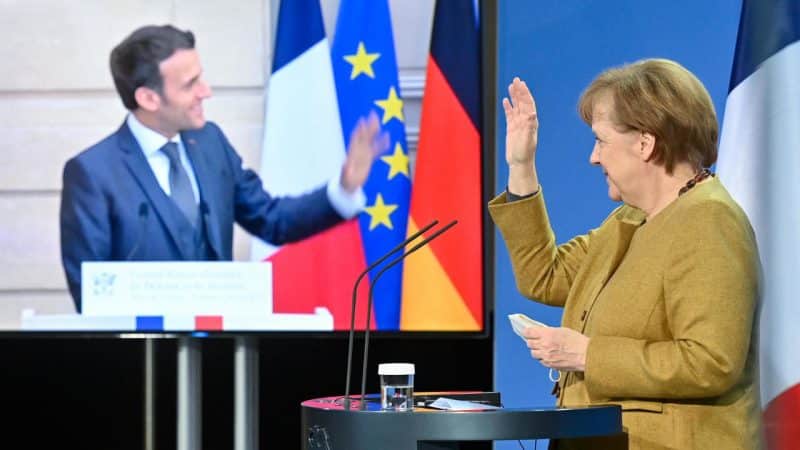Since its announcement a few months after the election of Emmanuel Macron as President of the French Republic in 2017, the Future Air Combat System, or FCAS, program has encountered numerous obstacles, to the point of being twice Already passed on the verge of breaking up. The cause is deep divergences and contradictory ambitions between French, German and Spanish expectations, and above all a blatant lack of trust between the 3 actors in the program, and especially between France and Germany. And the statements of the German Defense Ministry relayed by the website of the daily Der Spiegel are far from clarifying this already very obscure picture.
Indeed, for the German site, the Ministry of Defense in Berlin seems convinced that the NGF, the combat aircraft which will represent the main component of the FCAS program and will replace the Typhoon Germans and Spanish and Rafale French from 2040, will in fact only be a “ Rafale "improved" financed thanks to funds from France's partners, and to consider that the program is neither relevant for the German armies, nor for the country's aeronautical industry. Which, in itself, is not necessarily totally false from a certain point of view, since as Rafale, the NGF must be capable of carrying out the nuclear mission, be capable of boarding the future French nuclear aircraft carrier, characteristics specific to the Rafale and which Germany does not need. But such digressions are not unlike the very aggressive offensive led by the German Minister of Defense, Annegret Kramp-Karrenbauer against French positions in terms of strategic autonomy on the sidelines of the American elections. At that time, the French president was content to respond that he had a position in agreement with that of Angela Merkel, a way of indicating that the declarations of the German Minister of Defense had little weight in the continuation of defense cooperation programs between France and Germany.

The article published by Der Spiegel restores intensity to the positions defended by the Minister of Defense, and shows that the FCAS program, like the MGCS new generation battle tank program, also Franco-German, could well evolve under a sword of Damocles that is all the more threatening because it is inevitable, namely the imminent departure of Angela Merkel from the head of the CDU, and especially from the German Chancellery. However, today, we can wonder if these two programs do not continue today due to the sole will of the two European leaders, and if the departure of Angela Merkel from the German chancellery next September will not also mark their end to both?

The rest of this article is for subscribers only
The Classic subscriptions provide access to
all articles without advertising, starting at € 1,99.
Newsletter subscription
Register for the Meta-Defense Newsletter to receive the
latest fashion articles daily or weekly


[…] Whether it is industrial, military or even political authorities, today there are hardly any voices in France or Germany to hope that the Future Air Combat System program, or FCAS , come to an end. Even the French Ministry of the Armed Forces, the voice of the Elysée's European and Franco-German cooperation ambitions for more than 5 years now, is not resigned, but at the very least discreet, even skeptical on the subject. This failure in the making, which now seems almost inevitable, is often presented as the consequence of industrial opposition between Dassault Aviation and Airbus Defense & Space over the Next Generation Fighter, the first and most important pillar of the FCAS program, the piloting of which was awarded to the French aircraft manufacturer from the start of the program, but whose terms of cooperation are called into question by Airbus D&S. However, on closer inspection, this probable failure has its roots in successive decisions from Berlin, and this from 2017, even when the FCAS was barely taking shape in the speeches of Angela Merkel and Emmanuel Macron. […]